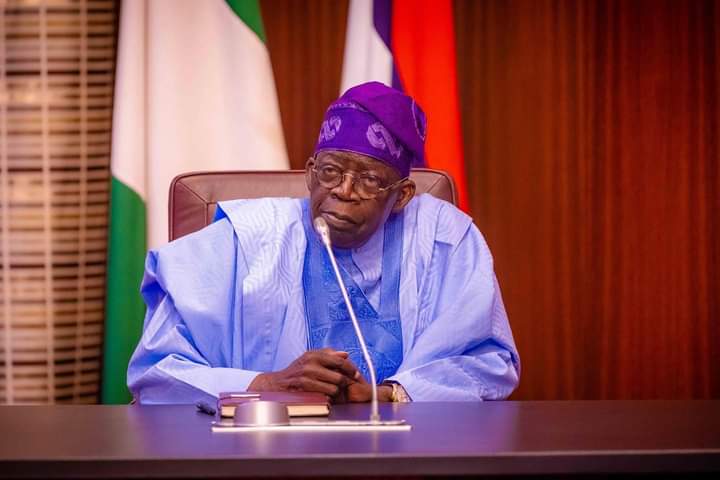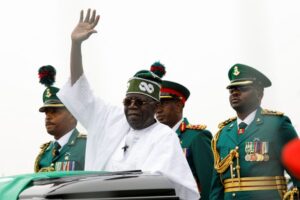Finance and economy experts have advised President Bola Tinubu to invest in transport and power sectors to reduce the current hardship being encountered by Nigerians as a result of the removal of fuel subsidy.
Recall that President Bola Tinubu had asked for a loan of $800 million from the World Bank, and the Senate had approved it on Thursday. Additionally, the 2022 Supplementary Appropriation Act was amended to include N500 billion in palliatives to minimise the impact of the removal of the petrol subsidy on the poor Nigerians.
Separate letters from the President asking for the two approvals were read aloud during a plenary session by Senate President Godswill Akpabio.
President Tinubu stated that the N8,000 monthly transfer to the bank accounts of 12 million low-income and poor households would occur for a period of six months and that the $800 million loan would be used to support the National Safety Net Programme, which would help the welfare of the nation’s poor and vulnerable households.
However Business experts have continued to fault the move by the Mr Tinubu government to distribute N8,000 palliative to vulnerable Nigerians.
Speaking with PoliticsNow, Kelechukwu Ogu, an analyst with SBM intelligence said the N8,000 palliatives would not have much impact on cushioning the effect of the recent subsidy removal.
Mr Ogu suggested that the Tinubu led government should invest in getting more mass transit buses to reduce the cost of transport that have further gone up as a result of the removal of fuel subsidy.
“ If you ask me I’ll say N8,000 doesn’t fix anything, looking at the realities of our current economy. While i commend the government for deeming it fit to think of ways to make life better for Nigerians after the removal of fuel subsidy, I feel we shouldn’t always throw money at our problems rather we should look at long term solutions like getting more of the BRT buses used in Lagos for mass transit, this will in turn reduce the cost of transportation,” Mr Ogu said.
The expert further called for an investment in the power sector to further improve the quality of electricity supply.
“There’s also the need to improve the quality of electricity supply, this will discourage people from purchasing fuel to power up their generators.”
On his part, Sina Ajoye, an Accounting expert tasked the president Bola Tinubu led government to proffer lasting solution to the current harsh economic condition occasioned by the recent removal of Subsidy.
Mr Ajoye who insisted that giving N8,000 was not only ridiculous but also not the way to end the hardship attached with the subsidy removal, suggested that the government focus on fixing the country’s non functioning refineries.
“It is quite simple, If we were refining the oil here, it will be cheaper. But our refineries have been dead for a long time. What I expected the government to have done is to use the money to fix the country’s refineries not to start sharing an unbelievable amount among disadvantaged Nigerians,” Mr Ajoye said.
The move, according to Mr. Oluwole Olusoji, president of the Association of Senior Staff of Banks, Insurance and Financial Institutions, was a repetition of the same old procedure that did not add any real value.
He said, “Subsidised quality of service, not cash handouts, are what the people need.
“Subsidised education up to a specified level; access to quality subsidised health services (free for children and established indigent families); subsidised government-managed transportation and efficient infrastructure (power, roads and communication) will add better value.”
In contrast, an investment in infrastructure through the provision of a good transport system, quality education, quality healthcare services, and decent social housing would have a better impact on the population, according to Akpan Ekpo, a professor of economics and public policy at the University of Uyo in Akwa Ibom State.
“If tomorrow, we solve our power problem, if we have 18 hours of uninterrupted power supply, it will go a long way to help those who are small business owners. It’s better than giving people N8,000 for six months or one year. I hope that’s not what they are thinking. The last administration gave people N5,000 to sell pepper, but it didn’t work. The best thing is to invest the money in hard and soft infrastructure, and to maintain the infrastructure over time,” he said.
Johnson Chukwu, an economist, said there were a number of substitute strategies the federal government could use instead of allocating funds.
“The N8,000 is too small to have any impact on the beneficiaries,” he said, adding that the government needed a proper register of its citizens.
Professor of Monetary Economics, Olusegun Ajibola, explained that the government’s choice was made to lessen the impact of the difficulties people faced.
Such a palliative, in his opinion, should only be used as a short-term solution and is not intended to be sustainable.
While some states revealed plans to purchase more mass transit buses for use by the workers, others announced immediate measures to address the situation, including reducing the number of days that workers would be required to attend their respective offices from the usual five to three.








More Stories
Dangote refinery reduces petrol price by N15
IGP orders investigation into killing of 14-yr-old WAEC candidate
Shadow cabinet: Court orders substituted service on Utomi